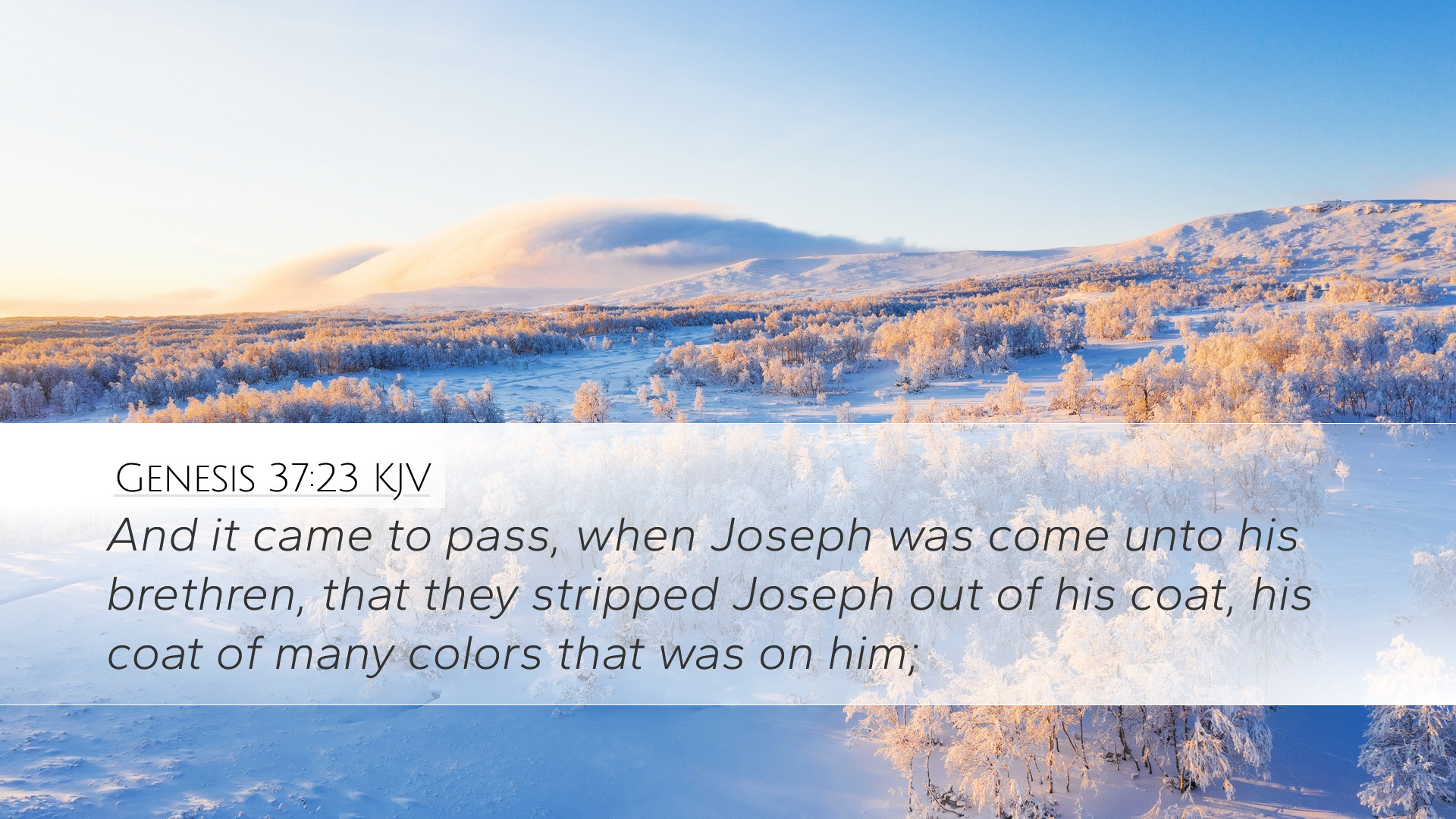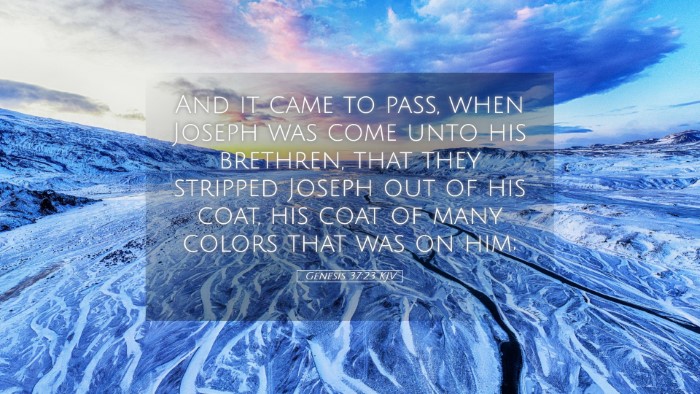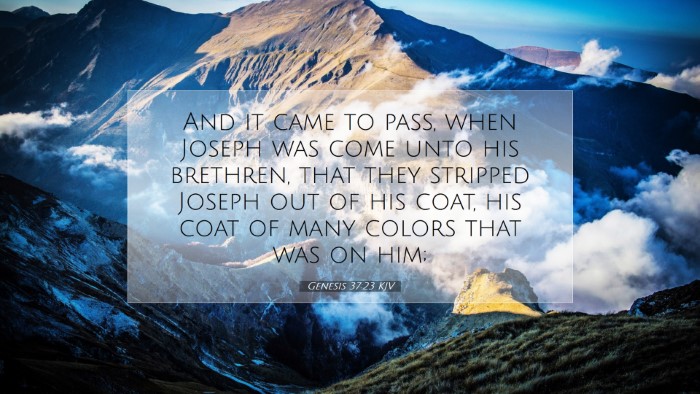Commentary on Genesis 37:23
Verse: "And it came to pass, when Joseph was come unto his brethren, that they stripped Joseph out of his coat, his coat of many colours that was on him."
Introduction
The account of Joseph's betrayal by his brothers is a pivotal moment in the Biblical narrative. This verse serves as a critical juncture, depicting the profound themes of jealousy, betrayal, and the unfolding of God's providence. It not only highlights the hostility that Joseph faced from his family but also sets the stage for the extraordinary events that would follow in his life.
Contextual Background
In Genesis 37, we find the family dynamics of Jacob’s household at play. Joseph, being favored by Jacob, earns the ire of his siblings. The father's special gift, the coat of many colors, symbolizes his favor but also becomes a source of envy and estrangement within the family.
The Coat of Many Colors
The coat, often interpreted as a sign of position and privilege, signifies Joseph’s favored status. Albert Barnes notes that it represented the affection of his father and an indication of Joseph's special role within the family.
Commentary Insights
Matthew Henry's Commentary
Matthew Henry emphasizes the emotional landscape surrounding Joseph's experience. He observes that the act of stripping Joseph of his coat symbolizes not just an act of aggression but a deeper attempt to strip him of his identity and dignity. This moment encapsulates how envy can distort family relationships and lead to devastating actions.
Albert Barnes' Perspective
According to Albert Barnes, the stripping of Joseph's coat is an illustrative action highlighting the malice of the brothers. He posits that the brothers’ violent actions were motivated by jealousy and resentment, underscoring the tragic consequences of familial discord. Barnes suggests that this incident serves as a warning about the destructive nature of envy.
Adam Clarke’s Explanation
Adam Clarke offers a theological reflection on this event, interpreting Joseph's coat as a symbol of the favor of God. He posits that the brothers' actions, while unjust, ultimately facilitate God's plan for Joseph to rise from the depths of betrayal to positions of power in Egypt. Clarke presents a compelling view of divine sovereignty, suggesting that God can use even the worst human actions for a greater purpose.
Theological Implications
This verse challenges theologians and biblical scholars to grapple with deep questions about human agency, divine providence, and the nature of suffering. Joseph’s experience reflects the struggles believers may face when they are unjustly treated. The stripping away of his coat symbolizes not just loss but also the beginning of a transformative journey through trials.
Application for Today
For pastors and students of the Bible, Genesis 37:23 serves as a profound reminder of the complexities of relationships and the reality of betrayal within families and communities. It calls for introspection on how envy can manifest in modern contexts and the necessity for reconciliation and forgiveness.
Key Lessons
- Envy Can Lead to Betrayal: The actions of Joseph's brothers underscore the destructive nature of jealousy.
- God Works Amidst Human Failings: Joseph's journey illustrates that God’s purposes can prevail even through human injustice.
- The Value of Integrity: Joseph’s unwavering integrity in the face of betrayal serves as a model for believers today.
Conclusion
In conclusion, Genesis 37:23 is not merely an isolated account of betrayal but a foundational moment that engages with themes of jealousy, divine sovereignty, and personal integrity. For contemporary readers, the narratives surrounding Joseph provide timeless insights into dealing with adversity and the complexity of human relationships. Through the lens of public domain commentaries, we see rich interpretations that bring depth to this poignant moment in scripture.


